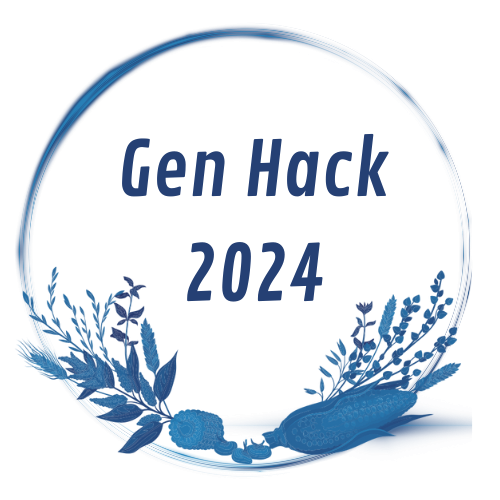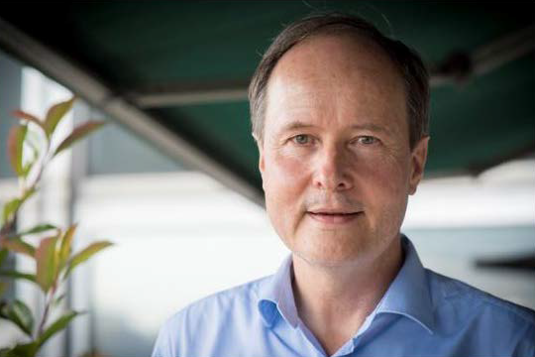- Home
- Genhack 3 - Hackathon For Generative Modelling
Genhack 3 - Hackathon for generative modelling

Context
"Human activities, mainly through greenhouse gas emissions, have unequivocally contributed to global warming, with the average global surface temperature between 2011 and 2020 1.1°C higher than in the period 1850-1900" (IPCC 7th Report, 2023).

Agriculture's exposure to climate impacts is not new, and farmers are the first witnesses and victims of these impacts. Increasingly early, intense and frequent heatwaves, changes in rainfall patterns and late frosts are having an increasingly harsh effect on agricultural production.
Given the importance of this sector, there is an urgent need to define resilient solutions for the future climate and developp new tool.
Changes in the climate can be seen in episodes of heavy rainfall, drought and temperatures which can undermine food security by slowing down growth on a global scale. This drought is specifically affecting many crops, particularly maize.
Maize is the world's most important cereal crop, making it an essential resource for millions of people.
The Objectives
Genhack3 is a data challenge of generative models to study the evolution of maize yield across the years in the context of the climate change. This consists in augmenting and enriching the data set by new data.
The final objective is to simulate potential future yield values taking account of changes in temperature and rainfall at different locations.
Create your team among hundreds of students among the top universities around the world!

Dr. Jean-François Soussana (Vice president for internationl policy of INRAE and Member of IPCC since 2018) is the mentor of the competition!
- Vice president for international policy of INRAE
- Scientific director for Environment
- Member of IPCC since 2018
- Lead Author of working group 2 and special report on Climate Change and Land (2019)
- Co-chair of the joint programming of research on agriculture, food security and climate change (FACCE JPI, 21 countries)
- Gold medal of the French academy of agriculture
- Gerbier-Mumm prize of WMO
- 175 research papers in international journals
- ….
Timeline
Registration : 2023, December 11th to 2024 January 15th
Tutorials sessions and Team building : 2024, January 16th to 19th
Kick-off : 2024, January 22nd at 6pm ( Paris time)
Competition : January 22nd to February 10th
January 31st: Evaluation #1
February 10th : Evaluation #2

Registration
Registrations are now closed
Deadline : 2024, January 15th
Competition
Data challenge are like marathons: Some people go to compete but most people take part to better themselves and have fun. Whatever the reason is you are at a data challenge, make sure you are upholding the spirit of data challenge by collaborating with other teams, and having fun.
The Rules
- As a participant, you must treat all team members, competitors, judges, professors, with respect and courtesy.
- Hackathon teams will be a maximum of 5 people and a minimum of 3 people.
- Teams have to be made exclusively of students (from undergraduate to doctoral studies).
- All your code must be in Python .
- A monetary prize for a winning team will be shared equally between all team members.
- Teams can of course gain advice and support from organizers, sponsors, coaches and others.
- All members of winning teams will have to provide proof of their student status. If not the whole team will be disqualified.
- Winning teams will have to assist to the closing event either in person or via a visio-conference system.
- Teams can be disqualified from the competition at the organisers’ discretion. Reasons might include but are not limited to breaking the Competition Rules.
- The agenda and the evaluation method are susceptible to change, in a fair and appropriate way, in case of unforeseen events.
Any questions ? Please send us an email to:
Organising Committee
Michaël Allouche : Senior Quant-Product Manager at Kaiko.
Emmanuel Gobet : Professor at Ecole poytechnique.
David Métivier : Research scientist at INRAE.
Jean Pachebat : PhD Student at Ecole polytechnique.
Marine Saux : Project Manager at Ecole polytechnique.
 Support l'X
Support l'X